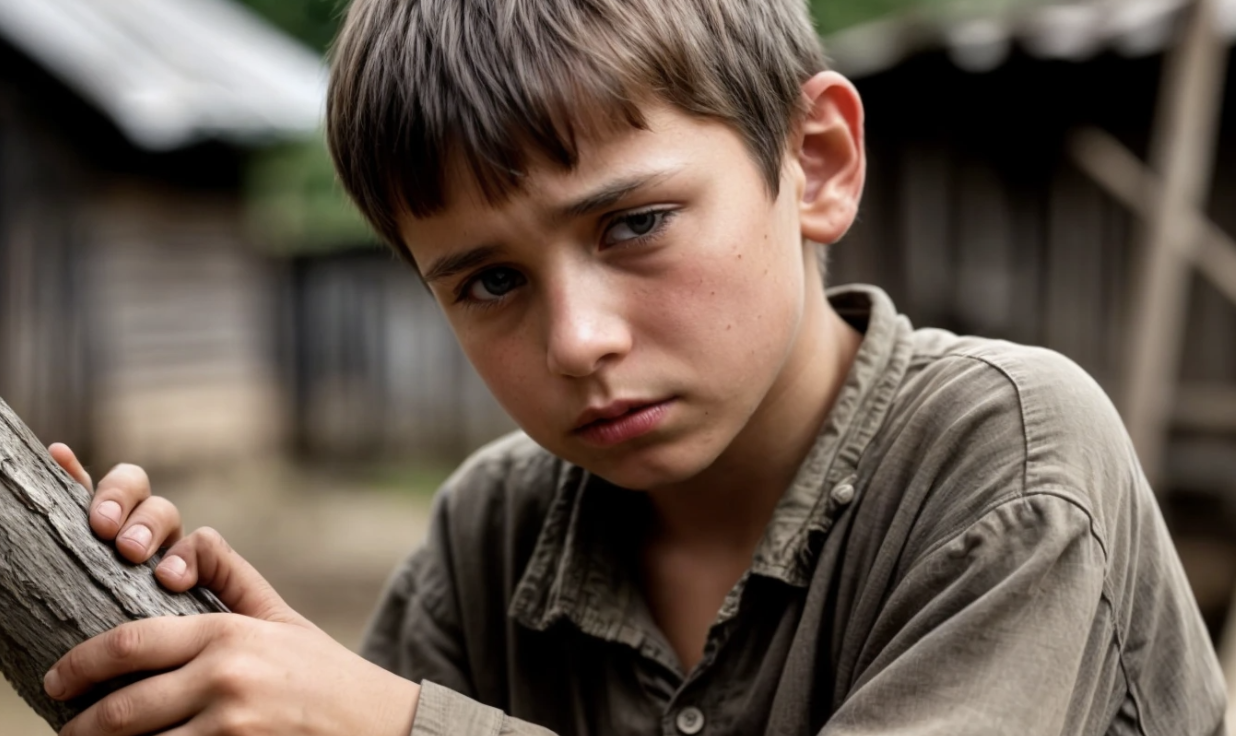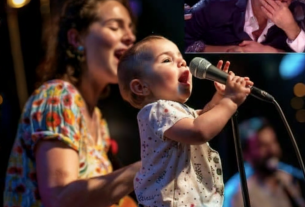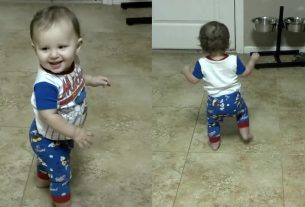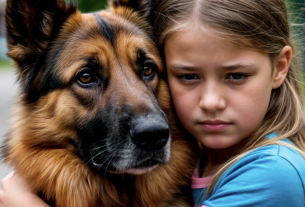Learning that her son was born with disabilities, his mother officially abandoned him eleven years ago. San’ka saw that very document — the official «abandonment» statement — with his own eyes. He stumbled upon it while delivering personal files to the medical station. The nurse handed him the folders and asked him to follow her, but then the phone rang, and she waved toward the office and ran off to answer it, leaving him alone.
She had no idea that, seeing his own last name in the file, the boy simply could not walk past. He opened the folder and read what was supposed to remain hidden. In the orphanage, all children wait for their parents. But San’ka stopped waiting. And he stopped crying too. His heart turned to stone, covered with thick armor — a shield against pain, loneliness, and indifference.
This orphanage, like any other, had its own rituals.
On the eve of the New Year, the children wrote letters to Father Frost. The director sent these letters to sponsors who tried to fulfill the children’s cherished dreams. Such letters even reached the airfield unit. Most often, the kids asked for one thing: to find a mom and dad. And adults, reading them, were puzzled — what kind of gift could possibly replace love?
One such letter was San’ka’s request. It was received by the flight engineer, Major Chaikin. He carefully tucked the letter into his uniform pocket, deciding to read it at home — to discuss with his family what gift they could give the boy.
That evening, during dinner, he remembered the letter, took it out, and read aloud:
“Dear adults! If you can, please give me a laptop. No need to buy toys or clothes — we have everything here. But with the Internet’s help, I could find friends and maybe even family.” Signed: “San’ka Ivlev, 11 years old.”
“That’s how smart kids are these days,” said his wife. “Indeed, through the Internet he can find anyone.”
Anya, their daughter, carefully reread the letter and looked thoughtfully at her father.
“You know, Dad, he really doesn’t believe he’ll find his parents. He’s not even searching for them — because they don’t exist. For him, the laptop is a salvation from loneliness. Look: he writes — ‘to find friends or family.’ Family can become strangers, too. Let’s take money from my piggy bank, buy him a laptop, and personally bring him the gift.”
The New Year celebration at the orphanage proceeded as usual: with a Christmas tree, a performance, a round dance around Father Frost and Snow Maiden. Then guests and sponsors distributed gifts, sometimes taking some children home for the holidays.
San’ka, as always, was expecting no one. He had long realized that mostly girls were chosen. Boys received no attention.
He wrote the letter mostly out of habit — everyone wrote, so did he. But today, among the guests, he noticed a man in a pilot’s uniform. His heart skipped a beat, but San’ka looked away and sighed quietly. Receiving his usual bag of candies, he limped slightly toward the exit.
“San’ka Ivlev!” he suddenly heard his name and turned around.
Behind him stood that very pilot. San’ka froze, not knowing how to behave.
“Hi, San’ka!” the man said kindly. “We got your letter and want to give you a gift. But first, let’s get acquainted. I’m Andrey Vladimirovich, but you can just call me Uncle Andrey.”
“And I’m Natasha,” added the woman standing nearby.
“And I’m Anya,” smiled the girl. “We are almost the same age.”
“And I’m San’ka Obrubysh,” he replied, a little confused.
The girl was about to say something, but the man handed him a box:
“This is for you from us. Let’s go; we’ll show you how to use it.”
They entered an empty room where lessons were usually held. Anya explained how to turn on the laptop, log in, get online, and register on social media. The father sat nearby, only occasionally helping. San’ka felt warmth, strength, care. Anya chattered endlessly, but the boy noticed she was smart, tech-savvy, and active in sports.
When saying goodbye, the woman hugged him. The delicate scent of her perfume tickled his nose and brought involuntary moisture to his eyes. San’ka froze for a moment, then freed himself and, without looking back, walked down the corridor.
“We will definitely come back!” the girl called out last.
And from that day, San’ka’s life began to change.
He stopped paying attention to the mockery of peers and didn’t get offended by nicknames. On the Internet, he found activities to his liking. He was especially interested in airplanes. He learned that the first mass military transport plane was the “An-8,” developed by Antonov, and the “An-25” was its modification.
On weekends, Andrey and Anya would visit him. Sometimes they went to the circus, played arcade games, bought ice cream. San’ka often refused such outings — he felt awkward that the guests paid for everything.
But one morning, he was called to the director’s office. There, to his surprise, he saw Natasha. His heart tightened, his throat dried.
“San’ka,” the director began, “Natalya Viktorovna asked to take you home for two days. If you agree, I will let you go.”
“Today is Aviation Day,” the woman explained. “There’s a big celebration at your Uncle Andrey’s unit. He wants you to come. Will you go with us?”
San’ka nodded happily; the words got stuck inside.
“Great,” smiled Natasha and signed the necessary papers.
The happy boy left the office holding her hand.
First, they stopped at a large clothing store. They bought jeans and a shirt. Noticing San’ka’s worn sneakers, Natasha took him to the shoe department. It took some time — his feet were different sizes.
“Don’t be embarrassed,” she reassured him. “After the holiday, we’ll visit an orthopedic salon and order shoes with a special sole for one foot. You’ll limp less, and no one will even notice.”
Then they went to the barber shop and afterward went home to get Anya. San’ka stepped across the threshold of a real apartment for the first time. He had never seen how ordinary families lived. Everything smelled cozy, warm, and familiar. Timidly entering a room, he sat on the edge of the sofa and looked around. Right in front of him was a huge aquarium with colorful fish — ones he had only seen before on TV.
“I’m ready,” announced Anya. “Let’s go, San’, Mom will catch up with us.”
They took the elevator down and headed to the car. By the sandbox stood a boy loudly shouting:
“Kandyl-baba, kandyl-ded!”
“Wait a second,” said Anya and decisively approached him.
San’ka immediately saw how she sharply turned him around, and the boy, screaming, fell into the sand.
“I was joking!” he muttered lying down.
“Joke somewhere else,” the girl replied and returned to San’ka.
The airfield was decorated with flags and banners. Uncle Andrey greeted them and led them to his plane. San’ka held his breath — he had never seen such a flying giant so close. His heart fluttered with admiration. Then the airshow began. All spectators watched the sky, waved their hands, and cheered joyfully. When Andrey’s plane appeared over the site, Anya shouted:
“Daddy is flying! Daddy!”
San’ka, despite his usual restraint, jumped in place and loudly shouted:
“Daddy! There’s Daddy flying!”
He didn’t even notice that Anya had long since fallen silent, intently watching her mother, who wiped invisible tears from her eyes.
Late in the evening, after dinner, Andrey sat next to San’ka and hugged him by the shoulders.
“You know,” he said gently, “we believe every person should live in a family. Only there can you learn to love, cherish, protect, and be loved. Do you want to become part of our family?”
A lump stuck in San’ka’s throat, his breath caught. He pressed close to the man and whispered:
“Daddy… I’ve been waiting for you so long…”
A month later, the happy boy said goodbye to the orphanage. Proudly and carefully, he descended the steps holding his new father’s hand, and almost without limping, walked toward the gates. They stopped there.
San’ka turned, slowly glanced back at the building, waved to the boys and caregivers standing on the porch.
“Now we will cross the line,” said the father, “beyond which your whole new life will begin. Forget all the bad things that happened here. But always remember those who helped you survive. Gratitude is the most important virtue. Value those who ever reached out their hand to you.”



